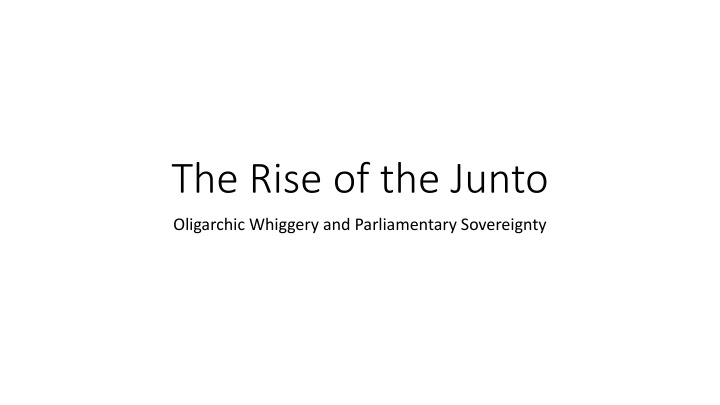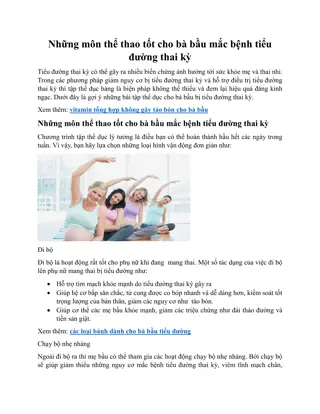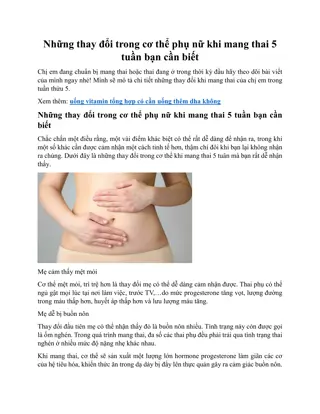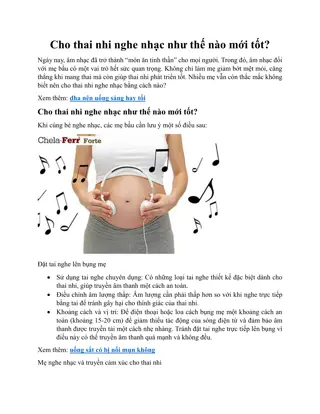
The Rise of the Junto Oligarchic Whiggery and Toryism in British Politics
Explore the historical dynamics of Junto Oligarchic Whiggery and Toryism in British politics, delving into their ideologies, influences, and relationship with parliamentary sovereignty. Discover the nuances of Toryism, Whiggery, Court & Country, and the political landscape during the reign of Queen Anne I.
Download Presentation

Please find below an Image/Link to download the presentation.
The content on the website is provided AS IS for your information and personal use only. It may not be sold, licensed, or shared on other websites without obtaining consent from the author. If you encounter any issues during the download, it is possible that the publisher has removed the file from their server.
You are allowed to download the files provided on this website for personal or commercial use, subject to the condition that they are used lawfully. All files are the property of their respective owners.
The content on the website is provided AS IS for your information and personal use only. It may not be sold, licensed, or shared on other websites without obtaining consent from the author.
E N D
Presentation Transcript
The Rise of the Junto Oligarchic Whiggery and Parliamentary Sovereignty
Toryism Royal prerogative in government (not same as divine right of kings; parliament is still the body of the king) Most Tories are High Church : importance of sacraments, priesthood, and regular church attendance as means of grace; Church as spiritual equivalent to Parliament, both under the King Blue Water : importance of Navy for trade and protection Tories =/= Jacobites: different ideas and different politics
Whiggery Emphasis on Parliament s power as a check on royal authority (not anti-monarchist or crypto-republicans) Mere Protestantism: Whigs emphasize larger sense of Protestant unity over COE distinctions; while almost all Whigs are part of COE, almost all Dissenters are Whigs; emphasis on broader tolerance Parliamentary Finance: willingness for standing army and imperial expansion through rising creditor class (more on this next week)
Court & Country: Problem of Political Labels An old trope: court = corrupt, power- hungry, elite (in London); country = pure, represent the nation, dispersed throughout the land (majority) Tories: popular but not represented (case of backbenchers vs. govt) Question: how well do party labels fit? Does the Whig-Tory divide explain better than Court-Country? What exactly is a moderate ?
The Last Stuart Queen: Anne I Junto Success: ability to secure finance (big government = $$$) and manage Parliament; rise of clubs (Kit Cat Club) to organize interests The New Politics of Monarchy: balancing the parties (monarch as strongest individual power, but on same field as parliament and courtiers) A Tory Queen?: Ann supported COE, but also continental war (War of Spanish Succession), but did not desire rise of Tory party (e.g. Robert Harley)
The Rage of Party The Advent of Political Parties: clubs (Kit Cat Club), newspapers, constant campaigning due to Triennial Act (1694) Backbenchers: Tories represent popular opinion throughout country-side of court corruption, taxing wealth of the people, eroding gentry and Church, sweep election in 1710 Representative of the People?: Parliament becomes representative body for the nation, with all sides claiming best to represent the people (in print, in speeches, in campaigning)
Christianity Not Mysterious: Enlightened Theology Censorship weakened and COE disciplinary structures frustrated New Sciences: Descartes materialism and Newtonian physical mechanics; questions about the world New Heresies in the COE(!): Socinianism (Christ s death as example, Tillotson?); Arianism (Christ is a creature, Newton); Tritheism (three-Gods?, Sherlock) Nature s Religion: Deism (God as engineer, natural revelation > special revelation); true Christianity as natural, the true goal of Reformation (Toland)
The Church in Danger High Church reaction: Sacheverell s Sermon calls for tightening up against Dissent and strengthening the Church; trial leads to popular outrage (against both new money and heresy) Failure of Convocation: Church attempts to deal with heretical works but unable to conclusively act (lower house vs. upper house); problem of damaged structural machinery Protestant Interest: Was COE unique or vehicle for worldwide Protestantism? What was Protestantism? What was the Reformation about?






















